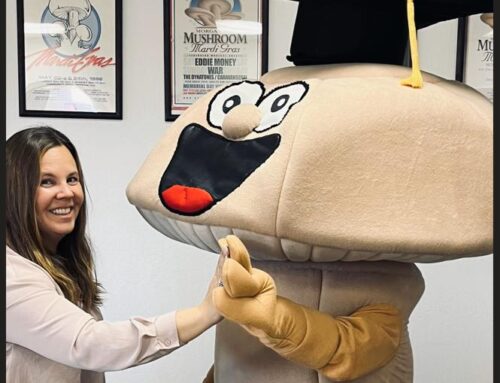Job as educators is to bring out that genius
To view a video of Genius Kids singing, click HERE
To view a video of Genius Kids owner Rohan Gill talking about learning, click HERE
Published in the June 10-23, 2015 issue of Morgan Hill Life
By Robert Airoldi

Photo by Marty Cheek
From left to right, Rohan Gill, owner, Chace Lamar (curly hair boy), Tatyana Borovick (blue dress), Stella Flores (girl in crown), Mason Gerhardt (brown haired boy behind the crown), Emerson Lamar (striped dress girl sitting on pipe), Matthew Chimal (boy in pipe), Hailey Brennan (girl in red stripes), teacher Gema Chimal (kneeling on ground), and teacher Hourieh Ghouribi, in a playground at Genius Kids’s site on Main Avenue.
The staff at Genius Kids believe every child possesses an “inner genius.” Teachers at the Morgan Hill learning center encourage this genius to come to life with wonder, curiosity, awe, spontaneity, vitality, flexibility and joy. One method the educators use to draw those qualities out is by employing an interactive screen and microphone that lets students see words, pictures and sentences, incorporating speech and public speaking into every lesson.
There are numerous reasons why this innovative technique is effective, said Rohan Gill, owner of the Morgan Hill Genius Kids site. “One, we help them with self confidence and later on in life when they interview for a job, what will set you apart is your speaking ability,” he said. “We feel having this quality of being able to speak publicly can only help later on in life and give that child the confidence they’ll need.”
When parents walk into Genius Kids’s large facility, they’re struck by the open space. Most classrooms are separated by partitions, the walls are decorated as any preschool or kindergarten classroom, with drawings by young students, the ABC’s posted to one wall, books and toys on shelves, and a plastic slide in the middle of a large main room. There’s a diaper changing station and an area where the students perform songs they’ve learned.
Outside are three large play areas with toys, slides and swings, separated for different age groups. Currently, the school has about 50 students with the capacity at 140.
Genius Kids practices a basic philosophy created by founder and CEO Rennu Dhillon: “Never 2 Little 2 Learn.”
“Every child born has a native language,” Gill said. “They speak their own language, they understand what they are saying to themselves and as educators we try to awaken that and bring that out.”
They try to hit on all senses, touching something, seeing the interactive board, hearing the music.
“Music is very important in our school,” he said. “We start our days with music and dance to get that energy out so we’re ready to go. We are constantly singing songs here at the school. The more fun you can have, the easier it is to educate the children.”
Founded in 2001, Genius Kids opened its first classroom in Fremont with two students under Dhillon’s guidance. A pharmacist by education, with a doctorate in natural sciences, and numerous specializations in pubic speaking and learning disabilities, Dhillon spent several years training adults, marketing and recruiting. She was astounded at the lack of confidence and communication skills in candidates she would send for interviews.
“On paper they had all the skills needed, but when it came to conducting a one-on-one interview or using interpersonal skills, it was shocking to see the lack of self-confidence,” she said.
Dhillon was raised in Kenya and the United Kingdom where greater focus is placed on early education than in America. “I was shocked to see that formal education in the United States begins at age 5, and found the American elementary education not very challenging. My parents had introduced drama and public speaking to me when I was 3.”
From her experience of struggling to find preschools that would give her two daughters the strong foundation and education she herself had received, she felt there was a void in the preschools and after school programs for a well-rounded educational curriculum. She began to develop her own learning programs, incorporating speech and public speaking into every aspect of learning. Early readers as young as 2-years and 3-months-old began to emerge. Soon Genius Kids students were winning competitions locally and nationally, along with being recognized for their well rounded personalities. Word spread quickly and today Genius Kids boasts six campuses and growing.
“I am committed to take early education to the next level where every parent and educator realizes the importance of a well-balanced curriculum to ensure no child is left behind,” she said. “After all, children are like sponges, absorbing everything they hear, see and do, if they are exposed during the window of opportunities between ages birth and 6 years old.”
Gill agreed, saying it’s important to make things fun. By doing so they don’t even realize they are learning and they are excited to come back. “There is always time for play, but it’s important to teach and get them ready for their next step in life,” he said.






